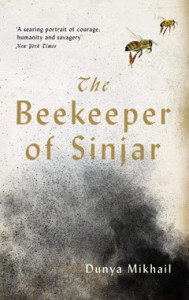When it comes to browsing the shelves and diving head-first into the wonderfully vast world of translated literature, sometimes you just need a little help from your friends. In this case—let us be your friends. Our editors are sharing their favourite reads to make sure that yours is time well spent.

Readers already familiar with Nina Berberova’s fiction in collections such as Billancourt Tales, The Tattered Cloak and The Ladies from St. Petersburg will find her first novel—translated by Marian Schwartz—a surprising divergence in style from the lightness of touch and sparse but pungent details in her stories about small casts of characters grappling with challenges in their everyday lives. Written in 1928-29, The Last and the First (Pushkin Press, 2021) is a drama on a broader canvas about Russian émigrés in France struggling to decide whether to return to the Soviet Union or to throw all their energies into establishing a meaningful life in France, specifically whether to join Ilya, the messianic central character, toiling on the land in Provence. It is driven by a complex plot in which the true identities and motives of some characters are initially hidden, and stylistically has more in common with novels of the nineteenth century, Dostoevsky being the writer who springs most to mind for the intense and knotted emotional relationships between the main characters, their striving for some kind of salvation, as well as in the vivid and grimy descriptions of the backstreets of Paris.
—Janet Phillips, Assistant Managing Editor (Issue Production)

A tale of two lives, that of a poetess living in the USA and of a Yazidi who saves the women of Sinjar, unfolds through a series of phone calls and a single face-to-face visit. In her pensive The Beekeeper of Sinjar (New Directions, 2018), masterfully translated from the Arabic by Max Weiss, the Iraqi-born Dunya Mikhail recalls her conversations with Abdullah, an ordinary man turned local hero, who has chosen to devote his days and nights to rescuing the innocent girls kidnapped by the militant group Daesh. Simultaneously a meditation on absurdity and a truthful account of real-life experiences, the book offers its readers a path to understanding the shifting values of a region long tormented by its past. The unimaginable loss and heartbreak that pour from every page are curiously accompanied by an almost inhuman ability to forgive, while the deceptively simple descriptions of misery bring home the scale of the disaster. Despite the traumatic events, however, the locals have managed to retain their purity and, what is more, to find time for the poetry of existence. As we all should.
—Andriana Hamas, Editor-at-Large for Bulgaria READ MORE…

